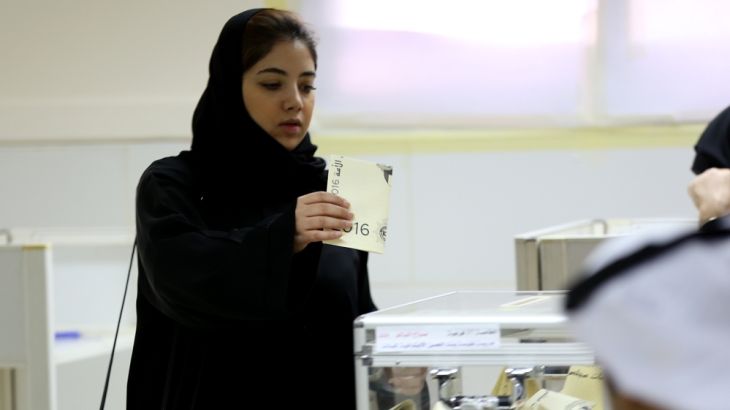Polls close in Kuwait parliamentary elections
Saturday’s snap election is widely seen as linked to dispute between government and parliament over austerity measures.

Polls in Kuwait, to elect members of parliament in the first vote to be contested by the opposition in nearly four years, have closed.
Saturday’s snap elections, Kuwait’s fourth since February 2012, were called by the Emir in October, after the government said “delicate regional circumstances and… security challenges” required a popular vote.
The move, however, was widely seen as linked to disputes between government and parliament over austerity measures, including a sharp rise in state-subsidised petrol prices.
State-run television reported on Saturday that voter turnout was high at several polling stations, with some centres reporting 70 percent of eligible voters had cast their ballots.
The results are likely to be announced on Sunday.
Women, who have had the right to vote in Kuwait since 2005, were some of the first to start queueing outside polling stations when voting began.
“We want the next parliament to stop the government from hiking prices,” pensioner Maasouma Abdullah told the AFP news agency.
“We want the government to begin taxing the rich and pay great attention to the low-income sections,” added Maha Khorshid, an education ministry employee.
OPINION: Shattering the myths about Kuwaiti Shia
Opposition candidates have campaigned heavily for economic and social reform and an end to what they charge is rampant corruption.
Kuwait’s 50-member parliament has legislative powers and the authority to question ministers, including members of the ruling al-Sabah family.
Hamad al-Matar, a former MP, said he expected the opposition, which fielded 30 candidates, to win a majority and prevent the government from raising prices.
Campaigning has focused mainly on austerity measures adopted in the past year, after officials forecast a deficit of $31bn for the 2016-17 fiscal year.
The OPEC state relies on oil for about 90 percent of its revenues.
Although the deficit is likely to be smaller than forecast, as it was based on an oil price of $25 a barrel, many Kuwaitis fear the government will try to raise prices further and cut many of the perks they have enjoyed for decades, including free healthcare, education, subsidised basic products, free housing or land plots and interest-free loans to many citizens.